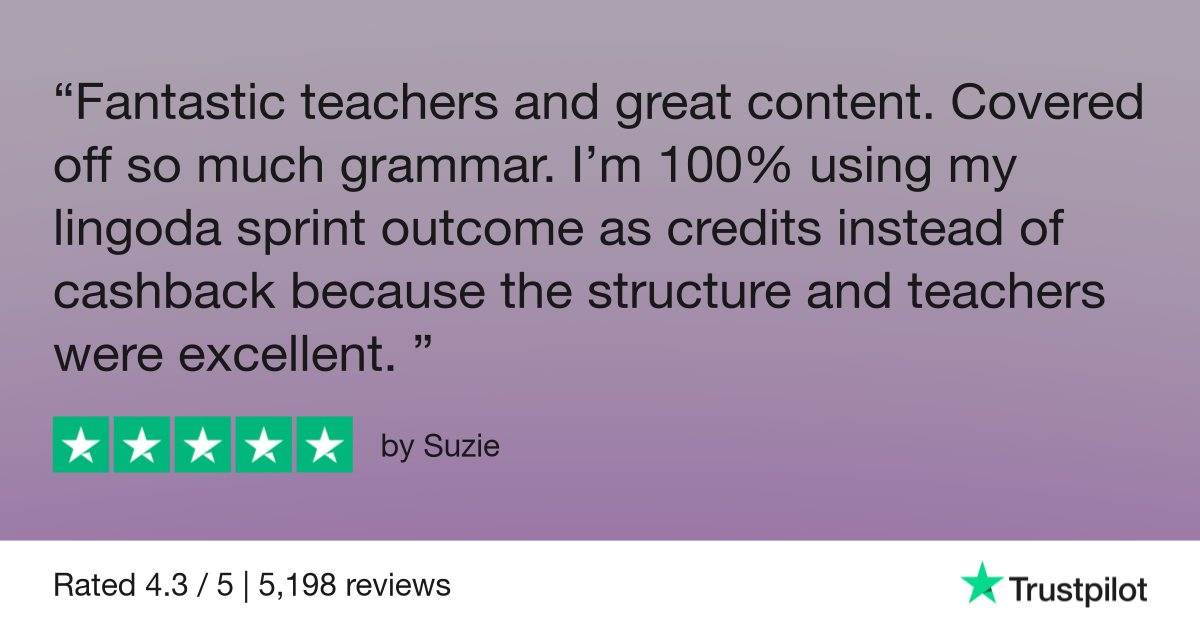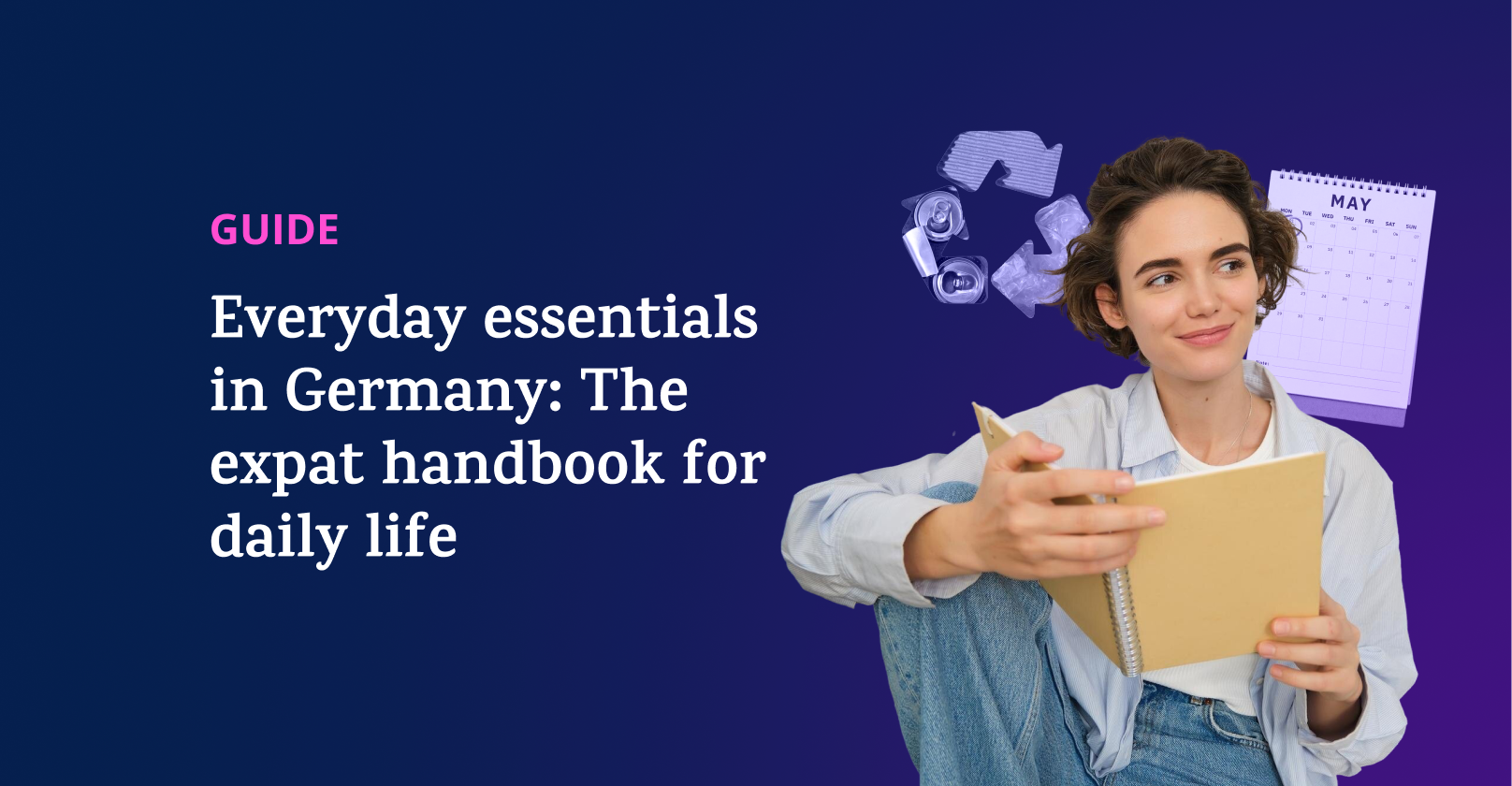‘Müssen’ conjugation in German: The complete guide

The müssen conjugation is one of the first things you’ll come across on your German learning journey. This commonly used modal verb plays a crucial role in expressing necessity, obligation and strong recommendations.
If you ever need to cancel plans with a friend or notify your landlord that a pipe urgently needs repair, you’ll need to know your way around müssen in German. You may also hear this verb in sentences directed at you, such as when your doctor informs you that you must take a certain medication daily.
In this guide, you’ll learn what müssen means, how to conjugate it correctly and how it differs from other modal verbs. With clear tips and practical examples, you’ll be ready to use the müssen conjugation in your own sentences.
- What does müssen mean in German?
- Is müssen a regular or irregular verb?
- How to conjugate müssen in all tenses
- Müssen vs. other modal verbs: key differences
- Sentence structure tips when using müssen
- Common phrases and examples with müssen
- FAQs
What does ‘müssen’ mean in German?
Müssen is one of the six German modal verbs, a group of auxiliary verbs that accompany the main verb and describe the modality of an action.
It’s a versatile verb, frequently found in both spoken and written German to indicate what must be done (its closest relative in English is in fact the verb “must”). Without it, it would be difficult to clearly communicate rules, obligations or urgent needs.
Is ‘müssen’ a regular or irregular verb?
Müssen is an irregular verb and belongs to the category of mixed verbs. This means it combines features of both strong and weak verbs.
- In the present tense singular forms, the stem vowel of müssen changes from ü to u, similar to strong verbs.
- Conjugations of müssen in the simple past take a -te ending.
- The past participle of müssen (gemusst) follows the regular pattern.
Because of these irregular changes, it’s important to memorize the main stems and forms of müssen early on. This will help you recognize and apply the verb correctly in different tenses and contexts.

Learn German with Lingoda
How it works

How to conjugate ‘müssen’ in all tenses
Let’s explore how to conjugate müssen in all German verb tenses. While it’s important to learn and internalize its various forms, remember that müssen, like most modal verbs, typically appears with a main verb and is rarely used independently.
‘Müssen’ in the present simple (‘Präsens’)
| Subject | Präsens |
| ich | muss |
| du | musst |
| er/sie/es | muss |
| wir | müssen |
| ihr | müsst |
| sie/Sie | müssen |
‘Müssen’ in the simple past (‘Präteritum’)
| Subject | Präteritum |
| ich | musste |
| du | musstest |
| er/sie/es | musste |
| wir | mussten |
| ihr | musstet |
| sie/Sie | mussten |
‘Müssen’ in the present perfect (‘Perfekt’)
| Subject | Perfekt |
| ich | habe gemusst |
| du | hast gemusst |
| er/sie/es | hat gemusst |
| wir | haben gemusst |
| ihr | habt gemusst |
| sie/Sie | haben gemusst |
‘Müssen’ in the past perfect (‘Plusquamperfekt’)
| Subject | Plusquamperfekt |
| ich | hatte gemusst |
| du | hattest gemusst |
| er/sie/es | hatte gemusst |
| wir | hatten gemusst |
| ihr | hattet gemusst |
| sie/Sie | hatten gemusst |
‘Müssen’ in the future tense (‘Futur I’ and ‘Futur II’)
In Futur I, müssen expresses what someone will have to do. It often describes planned, expected or scheduled obligations.
| Subject | Futur I |
| ich | werde müssen |
| du | wirst müssen |
| er/sie/es | wird müssen |
| wir | werden müssen |
| ihr | werdet müssen |
| sie/Sie | werden müssen |
Examples with a main verb:
- Ich werde das Projekt bis Freitag abschließen müssen. (I will have to finish the project by Friday.)
- Sie werden früher ins Büro fahren müssen. (They will have to go to the office earlier.)
Futur II with müssen indicates that something will need to have been completed by a certain time in the future. It’s often used when planning ahead or setting deadlines.
| Subject | Futur II |
| ich | werde gemusst haben |
| du | wirst gemusst haben |
| er/sie/es | wird gemusst haben |
| wir | werden gemusst haben |
| ihr | werdet gemusst haben |
| sie/Sie | werden gemusst haben |
Examples with a main verb:
- Er wird alle Unterlagen abgegeben haben müssen. (He will have had to hand in all the documents.)
- Wir werden uns bis Ende des Monats gemeldet haben müssen. (We will have had to get in touch by the end of the month.)
‘Müssen’ in the subjunctive mood (‘Konjunktiv I’ and ‘Konjunktiv II’)
| Subject | Konjunktiv I |
| ich | müsse |
| du | müssest |
| er/sie/es | müsse |
| wir | müssen |
| ihr | müsset |
| sie/Sie | müssen |
| Subject | Konjunktiv II |
| ich | müsste |
| du | müsstest |
| er/sie/es | müsste |
| wir | müssten |
| ihr | müsstet |
| sie/Sie | müssten |
‘Imperativ’, ‘Partizip’ and infinitive forms of ‘müssen’
Since müssen is a modal verb and is almost always used in combination with a main verb, it doesn’t have a true imperative form. Instead, commands or strong suggestions are typically expressed by using the main verb directly in the imperative form.
Another special feature is the Partizip I (müssend), which is rare and sounds very formal or literary. In contrast, the Partizip II, Infinitiv Präsens and Infinitiv Perfekt are much more frequent, especially in combination with auxiliary verbs in various tenses and structures:
| Partizip I | Partizip II | Infinitiv Präsens | Infinitiv Perfekt |
| müssend | gemusst | müssen | haben müssen |
‘Müssen’ vs. other modal verbs: key differences
‘Müssen’ vs. ‘sollen’
Both müssen and sollen are modal verbs used in similar ways, but they differ in source, strength and tone.
Müssen means “to have to” or “must.” The obligation comes from an objective necessity, such as rules, laws or physical needs. It describes a strong, unavoidable requirement and rarely appears in indirect speech:
- Ich muss morgen arbeiten. (I have to work tomorrow.) = The necessity comes from a fixed schedule or personal responsibility.
- Man muss die Umwelt schützen. (One must protect the environment.) = The necessity refers to a universal truth or firm obligation.
Sollen means “to be supposed to” or “should.” The obligation originates from an external source, whether it be another person or some form of unembodied authority. It implies a softer obligation or recommendation and is often found in indirect speech:
- Ich soll morgen arbeiten. (I’m supposed to work tomorrow.) = Someone decided that I should work or expects me to work.
- Man soll die Umwelt schützen. (One should protect the environment.) = In this case, sollen indicates a moral suggestion rather than a strict rule.
‘Müssen’ vs. ‘dürfen’/’können’
You’ve learned that müssen expresses necessity or obligation, while sollen indicates a recommendation or suggestion. But what about other modal verbs like dürfen and können?
These two describe very different types of modality, so switching one for another can completely change the meaning of a sentence.
Let’s take a sentence you’ve already encountered and see how its meaning shifts with dürfen, which conveys permission:
- Ich darf heute arbeiten. (I’m allowed to work today.) = There’s no restriction on my ability to work. I have permission to work, e.g., because it’s not a holiday or I’m no longer sick.
Now let’s try it with können, which conveys ability or possibility:
- Ich kann heute arbeiten. (I can work today.) = I’m able to work, either physically or because my schedule allows it.
Sentence structure tips when using ‘müssen’
In main clauses, which reflect the basic German sentence structure, müssen and other modal verbs always come in the second position, while the main verb appears at the end in its infinitive form:
- Ich muss heute länger bleiben. (I have to stay longer today.)
In subordinate clauses, müssen comes after the main verb in its infinitive form, and both are placed at the end of the clause:
- Ich glaube, dass ich heute länger bleiben muss. (I believe that I have to stay longer today.)
When müssen is used together with an auxiliary verb like haben or werden, the auxiliary verb is conjugated, while both the main verb and müssen appear in the infinitive at the end:
- Ich habe heute länger bleiben müssen. (I had to stay longer today.)
- Ich werde heute länger bleiben müssen. (I will have to stay longer today.)
To express negation in German, nicht is placed before the infinitive verb at the end:
- Ich muss heute nicht länger bleiben. (I don’t have to stay longer today.)
In basic questions, such as yes/no questions, müssen comes in the first position. The subject goes to the second position and the main verb goes to the end:
- Muss ich heute länger bleiben? (Do I have to stay longer today?)
In W-questions (i.e., those beginning with was, wo, wer, wie, etc.), the question word comes first, followed by müssen. The subject and main verb come at the end:
- Warum muss ich heute länger bleiben? (Why do I have to stay longer today?)
Common phrases and examples with ‘müssen’
Let’s take a look at some common phrases you may encounter in everyday life:
- Wir müssen einkaufen gehen. (We have to go shopping.)
- Ich musste einen Termin beim Zahnarzt vereinbaren. (I had to schedule an appointment with the dentist.)
- Du hast die Unterlagen abholen müssen. (You had to pick up the documents.)
- Ihr hattet beim Amt anrufen müssen. (You had to call the public office.)
- Der Arzt sagt, ich müsse die Medikamente nehmen. (The doctor says I have to take the medication.)
- Ich müsste jetzt nach Hause gehen. (I should be going home now.)
Is ‘müssen’ a regular or irregular verb in German?
Müssen is an irregular verb and belongs to the category of mixed verbs. In the present tense singular forms, it changes its stem vowel, but it follows regular patterns in the simple past and past participle.
What does ‘müssen’ mean in German?
Müssen means “to have to” or “must” and indicates a strong obligation that arises from an objective necessity.
Ready to use the ‘müssen’ conjugation like a pro?
The müssen conjugation is important because it helps you express obligations, necessities or rules in everyday situations. Mastering its forms also means internalizing basic German sentence structure and understanding key differences between müssen and other modal verbs, such as sollen, dürfen and können.
If you want to learn German and truly understand its grammar, Lingoda can help. With native-level teachers and flexible class scheduling, you can learn with the freedom to adapt lessons to your daily routine.

Learn German with Lingoda
How it works

















